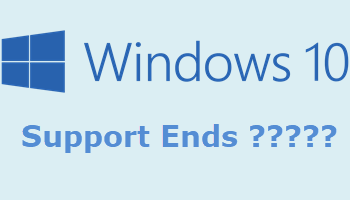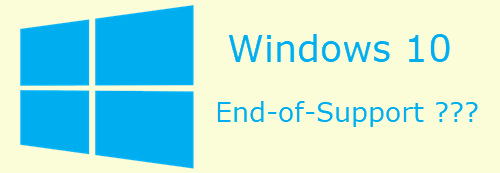In a shock move, Microsoft recently announced it will be re-opening the Beta Channel for Windows 10 Insiders so they can test the latest new features. This flies in the face of an earlier Microsoft announcement stating that Windows 10 22H2 would be the final Windows 10 version with future updates restricted to security updates only:
Windows 10 will reach end of support on October 14, 2025. The current version, 22H2, will be the final version of Windows 10, and all editions will remain in support with monthly security update releases through that date.
Make of this what you will, but it seems a rather bizarre decision to continue developing and adding new features to an operating system that is due to reach end-of-support in just 16 months. Especially when Microsoft has been avidly pushing Windows 10 users to upgrade to Windows 11.
What makes it even stranger is that as part of that push to encourage users to upgrade, Microsoft has recently released a comparison chart showing all the features available in Windows 11 that are above and beyond what’s available in Windows 10.
I must add that in its announcement regarding re-opening the Windows 10 Beta Channel, Microsoft confirmed that Windows 10’s end-of-support date (October 2025) remains unchanged. However, this is coming from the same company that stated Windows 10 would be the last Windows version ever.
Will Microsoft Extend Support For Windows 10?
I doubt Microsoft will change its mind and extend support for Windows 10. Let’s take a look at the potentially deciding factors.
Deciding Factors For Extending Support
- Microsoft’s recent decision to add more features to Windows 10 (as per this article)
- Considering that as of October 2025, millions (if not billions) of PCs that do not meet Windows 11’s strict requirements will potentially become obsolete, it seems the sensible thing to do (not that Microsoft historically tends to do the sensible thing)
- Windows 11’s uptake has been slow, much slower than Microsoft anticipated with Windows 10 still well and truly dominating market share. Under these circumstances, potentially losing millions (billions?) of Windows users does not make much business sense
Deciding Factors Against Extending Support
- Microsoft is currently adamant that Windows 10’s end-of-support date will not change
- For the first time ever, Microsoft has announced an ESU (Extended Security Update) program for consumers (as yet no pricing has been announced for these plans)
- For more information on the consumer ESU please read: Microsoft News – Extended Security Updates
BOTTOM LINE:
As I mentioned earlier, I doubt support for Windows 10 will be extended. That said, if Microsoft is not considering extending support for Windows 10, adding new features to an operating system that is fast heading for obsolescence does not make a lot of sense. Plus, I’d imagine that the potential for losing millions of Windows users would not be palatable to Microsoft.
What do you think, will Microsoft bite the bullet and extend support for Windows 10, or not? Let us know your thoughts via the comments.
—


Windows 11 was to sell new computers and Windows 11 operating systems period.
Of course, the Microsoft guys are seeing their Windows 11 is not being well received. My bet is that they will end up extending Windows 10 support. It is, in fact, a setback for Microsoft, indeed, but also a “political” victory for them, for they want to be regarded as a “user-sensible company”. A change of mind, then? Yes. “It has happened before. It will happen again. It’s just a matter of WHEN” (Heard in the Armageddon movie, 1996)
Windows 11 market share is putrid at a point in time where it should be close to or on par with Windows 10 and now with the addition of recall I suspect it will get worse.
My bet is either one of two things will happen….
1.) Like Jim wrote they will extend Windows 10 support
or
2.) They will relax considerably the hardware requirements on the Windows 11 installation
As I’ve mentioned Windows 11 was released at a time when the world hasn’t been the best financially.
People can’t afford to upgrade their devices and then some newer devices aren’t technically compatible without workarounds